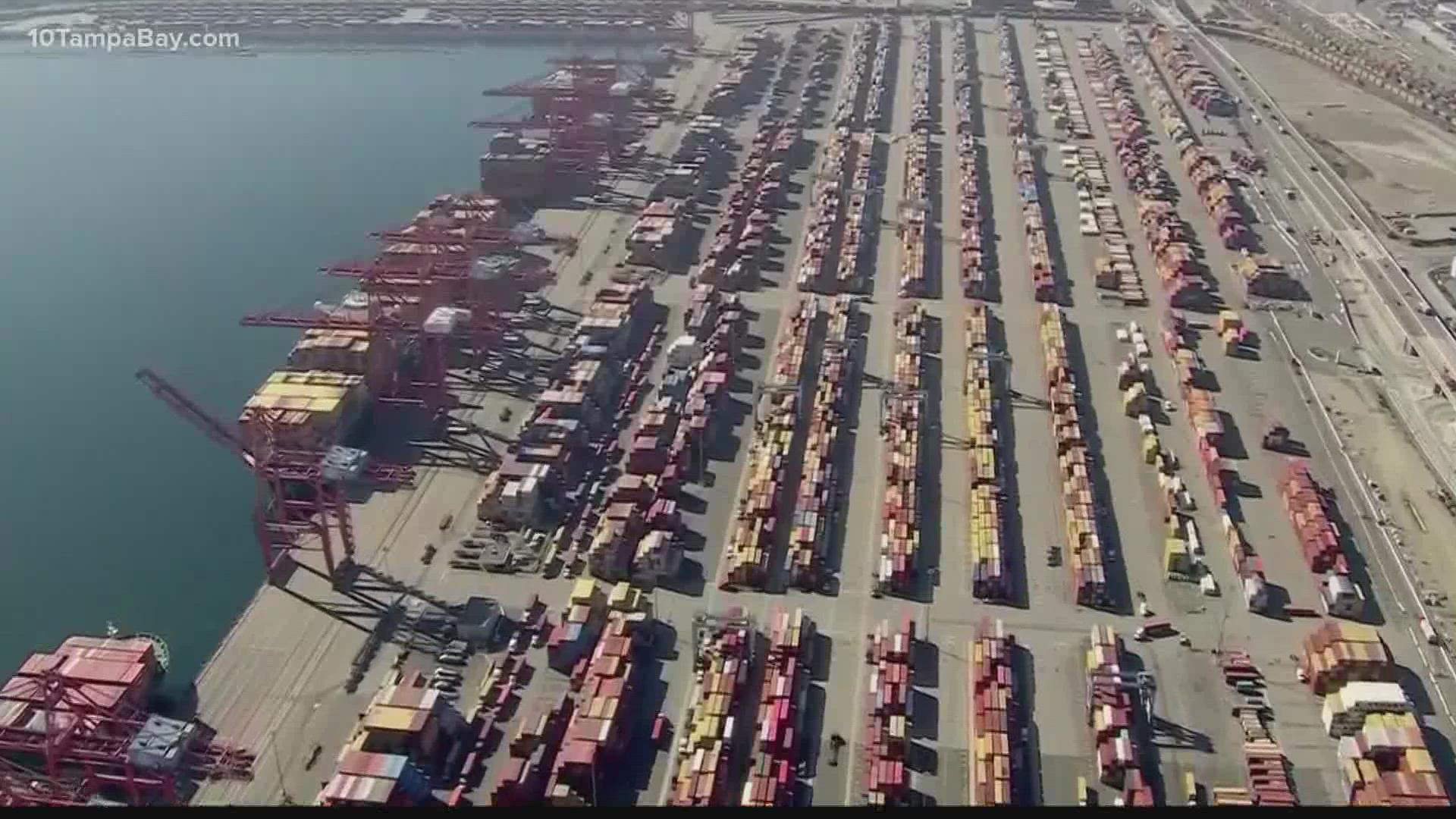The new COVID variant could have an impact on the supply chain. Right now, economists warn there's a lot we don't know about omicron, but it's possible the supply chain could see a negative impact.
“We don’t know a whole lot yet about how transmissible, it seems like it’s highly transmissible. We don’t know how people who are immunized will do against this new variant. We simply don’t know yet," a Professor of Economics at Florida Gulf Coast University, Victor Claar explained.
Claar stated the U.S. secretary of commerce said this week, it's too soon to know what impacts omicron could have on the supply chain.
“We have this backlog now combined with the threat of maybe additional disruptions of the supply chain," Claar said.
Over the last two years, COVID had a big impact on the supply chain.
“It’s really disruptive to the supply chain when you send everyone home for a couple of months," Claar stated. All the safety precautions people took in the pandemic played a role in the broken supply chain. “No good thing comes at no cost," Claar said.
She added that things are improving with jobless claims decreasing, but with omicron, we have a lot to figure out.
“We have better answers now two years into the pandemic than we did before, but we just don’t know enough about this particular variant," Claar said.
In 2020, people stocked up on items, which Claar doesn't believe will happen again. “People who went out and bought every hand sanitizer or every last toilet paper," Claar said. She went on to explain there was so much uncertainty then, but now we know more.
When items are limited people could notice things are more expensive.
“When prices don’t rise rapidly when demand is surging, it encourages the worst behavior," Claar said. She explained, if you notice something is more expensive, the responsible thing to do as a consumer would be to only buy what you need. Claar said if we all do this, it will help things improve within the supply chain.
Another aspect that can help with improving the supply chain is shipping routes remaining open.
“If shipping routes remain open, especially across the Pacific, I think we’ll all be okay, especially as American ports continue to add capacity," Claar explained.
As for when the supply chain will get back to normal, Claar said that's another question that can't be answered right now.
“The only question is how quickly can we work out these disruptions, but I don’t think anyone knows for sure," Claar said.

